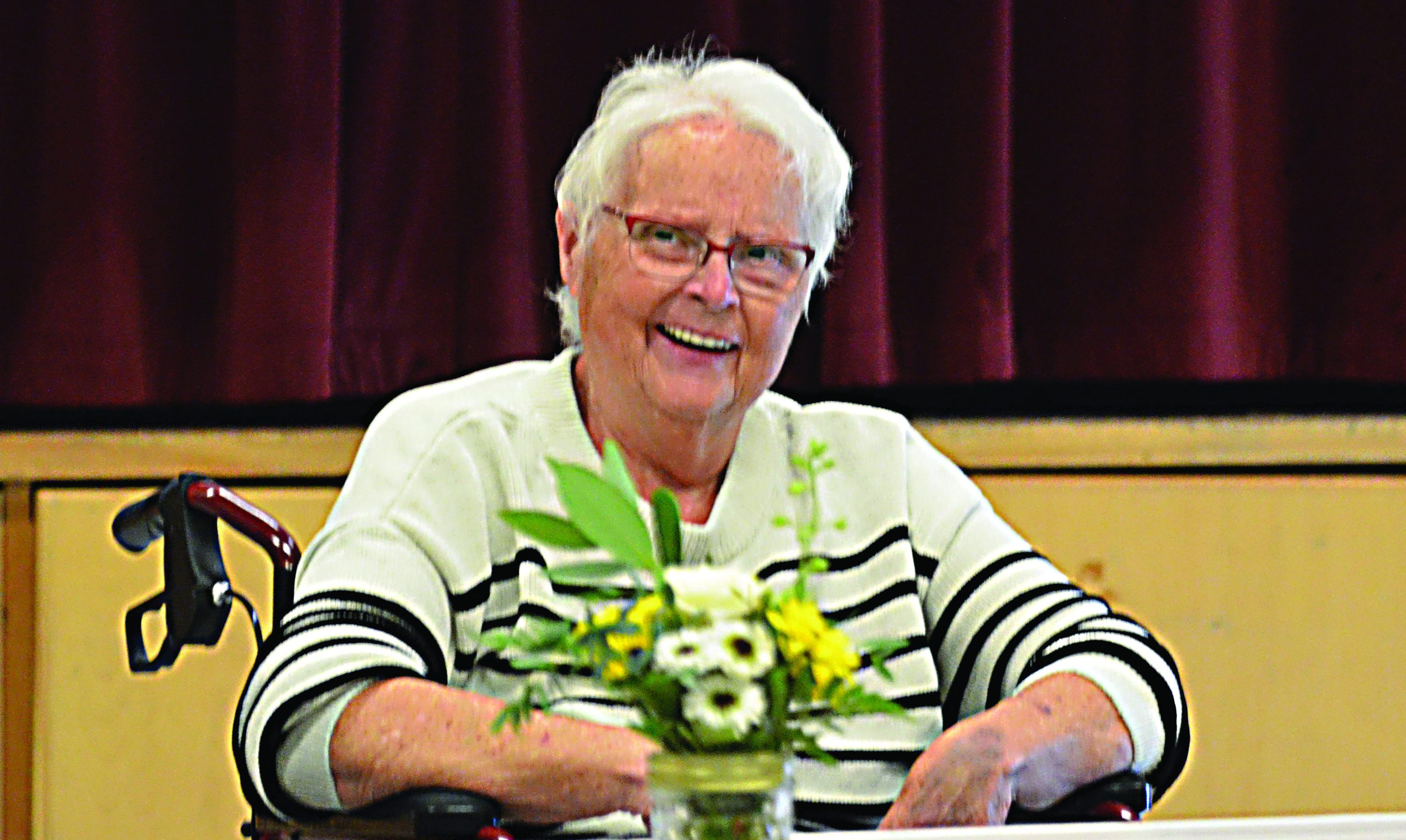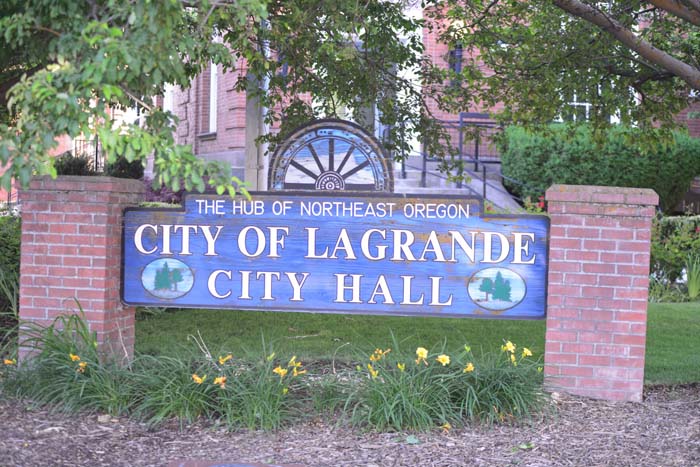Union County Jail tries new approach to help inmates with opioid addictions
Published 4:15 pm Thursday, January 11, 2024
LA GRANDE — The Union County Sheriff’s Office is starting to use a promising new drug in the Union County Jail to help adults in custody overcome their addiction to opioids.
Union County is entering into a contractual agreement with Eastern Oregon Coordinated Care Organization to provide the drug Sublocade instead of Suboxone to treat those in its opioid addiction recovery program through 2024. The program will be funded by a $122,800 grant from the Eastern Oregon Coordinated Care Organization.
Trending
“We are very excited about this,” Union County Sheriff’s Office Lt. Nick Huelter said.
(Wallowa County has a contract to send its jail inmates to the Union County Jail.)
Suboxone is effective in reducing the cravings for opioids but administering it is a daily and time-consuming process, Huelter said. By comparison, Sublocade is just as effective but can be administered with a single injection once a month. The only drawback to Sublocade, he said, is its cost, which is about $1,600 a shot. The cost of administering Suboxone is far less.
The expense will not be an issue at the Union County Jail in 2024 because of the grant Union County will receive. The grant was approved by a 3-0 vote of the Union County Board of Commissioners on Dec. 20, 2023.
Adults in custody at the jail who are in treatment for opioid addiction will begin receiving monthly shots of Sublocade around mid-January.
The shots will be provided by staff from the Center for Human Development, the La Grande nonprofit that provides public health services to Union County. Some adults in custody will still receive Suboxone, though, as they transition off of it and on to Sublocade, Huelter said.
Trending
Administering Suboxone
Currently, adults in custody being treated for opioid addiction are provided with doses of Suboxone up to four times a day.
They must stay in the presence of an officer with the county jail for 15 minutes for observation after taking each dose. This is done to make sure the dose given is actually absorbed by the patient.
Huelter said there is always a chance that adults in custody will not take the Suboxone they received for a number of reasons. For example, they could sell it or trade it away.
However, he added, most of the people being administered Suboxone look forward to receiving it. This is because by the time they are set to receive their next dose the one they last received is wearing off.
“They are getting more cravings,” he said.
Adults in custody, as a result, often go from having no cravings for opioids to having strong ones several times a day. Huelter said this will not be the case once adults in custody begin receiving Sublocade. He said that each shot will provide a patient with a level of Sublocade which will remain consistent for a month.
“There will be no spikes,” Huelter said.
The shots will be given by the staff of Western Skies Wellness Center in Island City, the jail’s medical services provider. Western Skies Wellness Center has been a partner in this project from the start.
CHD connection
The Center for Human Development will be supporting the Union County Jail in this project by providing a prescriber who is experienced in working with the jail’s medication for opioid use disorder program.
The prescriber will be Dale McQueeney, CHD’s psychiatric-mental health nurse practitioner and associate medical director of its substance use disorder treatment program, according to Chris Evans, director of communication and marketing at CHD.
CHD will also provide care coordination for adults in custody when they are released from the jail, helping them stay connected with treatment for their opioid use recovery program either with CHD or with other providers.
A big reason the Eastern Oregon Coordinated Care Organization is providing its grant to Union County is to help those recovering from opioid addiction have a better chance of continuing their trek forward after being released, said Dr. Chuck Hofmann, of Meridian, Idaho, a clinical consultant with the Coordinated Care Organization. Hofmann is a general internist who practiced in Baker City for 35 years before retiring.
Hofmann explained that when those who are being treated with Suboxone are released from jail they must make arrangements for continuing to receive the medication, which must be prescribed. This can take time, during which the patients’ craving and withdrawal symptoms will return, putting them at risk of going back to using opioid drugs like heroin.
Hofmann said, though, that if these patients have received an injection of Sublocade less than a few weeks before being released, they will have the time needed to arrange for continued treatment before the cravings return.
“Instead of finding their next fix, they will be finding their kids and finding a job and not getting high,” he said.
Local follow-up
Hofmann added that opioid addiction patients, regardless of their stages of recovery, are especially vulnerable in the days immediately after their release from custody.
“Their lives are pretty chaotic,” he said.
Hofmann said that before patients leave the Union County Jail, arrangements will be made with health care providers, including CHD, to make sure they can continue receiving Sublocade shots.
“We want them to have seamless local follow-up,” he said.
People recovering from opioid addiction do not begin to have cravings until approximately 28 days after receiving their last Sublocade injection, Hofmann said. After that point, the cravings progressively increase each day.
The cost of receiving Sublocade injections is covered, in many cases, by the Oregon Health Plan, which many adults recovering from opioid addiction are often on, Hofmann said. The physician noted, though, that patients lose their Oregon Health Plan coverage when in jail. This is another reason, he said, why the Eastern Oregon Coordinated Care Organization (EOCCO) will be providing its grant to the Union County Jail.
Union County was awarded the EOCCO grant in large part because of the Suboxone program it already has, one of the few at a county jail in Oregon, Hofmann said.
Pilot project
Hofmann said the Union County Jail will be the only in Eastern Oregon with a Sublocade program. He said the coordinated care organization will keep a close eye on the number of Union County Jail patients receiving Sublocade who return to jail and the behavior of those receiving Sublocade.
The Eastern Oregon Coordinated Care Organization is helping establish Suboxone programs in the Umatilla, Baker and Malheur county jails. However, the Sublocade program in Union County will be the first such program it has helped set up in a county jail. Sublocade programs are in use in a number of other county jails in Oregon, including Clackamas and Lincoln counties.
“We hope it will be so successful that other organizations will begin helping provide funding for Sublocade programs,” Hofmann said.
Hofmann started a Suboxone clinic for those overcoming opioid addition in Baker City in 2017 at New Directions Northwest, a county mental health clinic. He ran the clinic, which is still operating, through 2019. He said Sublocade and Suboxone are equally effective at stopping the cravings opioid patients experience.
“They both have the same active ingredient, buprenorphine,” he said.
Buprenorphine, Hofmann said, binds to the same brain receptors as opioids do. This prevents addicts from experiencing cravings and feelings of withdrawal.
Hofmann noted that if someone on buprenorphine were to take an opioid drug, they would not get a feeling of euphoria because there would be no receptors for the opioids to bind to.
OHSU
The Eastern Oregon Coordinated Care Organization, Hofmann said, has contracted with Dr. Dan Hoover to provide expert consulting services for its Medication-assisted Opioid Use Disorder treatment program in county jails. Hoover is an assistant professor in the OHSU Division of General Internal Medicine, section of Addiction Medicine.
Union County Sheriff Cody Bowen is a strong supporter of the switch to Sublocade.
“It will reduce the workload of our deputies,” he said.
Bowen added that Huelter deserves a lot of credit for setting up the program.
“I like his willingness to look for new and better ways to be more efficient,” he said.










